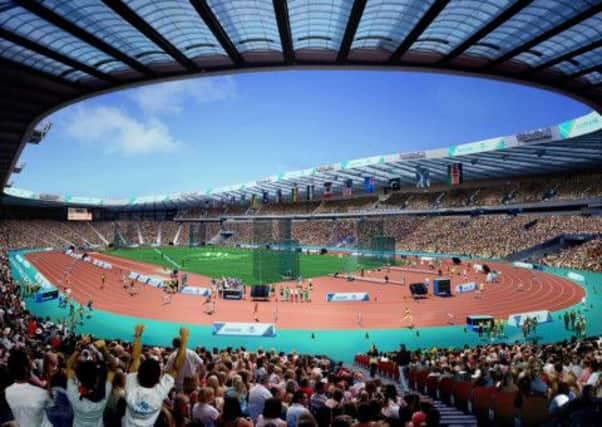Craft brewers have place among big event sponsors


Despite what many of us thought when they were awarded to London, there is little doubt that the 2012 Olympics were a resounding success from start to finish. As the biggest event, sporting or otherwise, on the planet, it appeared to me that the intention was for it to be global and that the host city was merely a background. The opportunity to “sell” the host city and country to the billions watching was limited to the opening and, to a much lesser extent, closing ceremonies.
Again, there is little doubt that the opening ceremony last year was a spectacular success in showing the best of the United Kingdom in the last 200 years or more – from the industrial revolution to James Bond. However, a global event needs global sponsors to pay millions of pounds for their logos to be exclusively touted around all the Olympic venues including, somewhat ironically, £64 million each by a global burger chain and a producer of fizzy, sugar-laden soft drinks.
Advertisement
Hide AdAdvertisement
Hide AdThe total sum raised in this way was more than £2 billion and included a £10 million figure to be the official beer supplier and provider to the 2012 Olympics.
A very British affair
Given the aim of making those games a very British affair – and given that the majority of tourists who visit this country list visiting a British pub as one of the main reasons for coming – you would have thought that the organising committee, LOCOG, would have been keen to have a local product as the beer of the Olympics. Not a bit of it, as that “honour” fell to a Dutch-based global brewer which was only allowed to promote its major brand and, even though it was allowed to sell two British brands in Olympic venues, these were listed merely as “Cider” and “British Bitter”.
How does this impact on Scotland with the Commonwealth Games just a matter of months away? Well, as we taxpayers will be stumping up most of the money, we should insist the Scottish Government ensures that, even if the big guys are putting in most of the sponsorship money, they are not allowed the exclusive franchise and that other, smaller, producers are allowed access – a maximum of 80 per cent would seem reasonable.
There are almost 70 breweries in Scotland, most of whom are producing top-quality beer and succeeding with little help from either the large, pub-owning companies, who deny them access to market, or the supermarkets, who demand beer virtually free for the privilege of a small space on their shelves.
Vibrant sector
Imagine the boost to this vibrant sector if the Scottish Government announced that, as part of the arrangement for the Commonwealth Games, at least 20 per cent of the beer sold comes from small producers who will not have to pay the earth to be there and, consequently, have to charge customers way over the odds to turn a small profit.
And it shouldn’t just affect the Commonwealth Games. Where the Scottish Government gets involved in other sporting events, such as golf’s Scottish Open, we must make sure that the politicians who sign off on the money that we put into these events issue certain caveats – such as I have suggested above.
It is surely ludicrous for the Scottish Open, held just outside Inverness, only to sell a Belgian beer when the likes of Cairngorm and Black Isle breweries are only a matter of 30 to 40 miles away.
The other major national event taking place next year is Homecoming 2014, and we can only hope that, if an event such as The Gathering in 2009 happens next year, a range of good quality Scottish beer is available at a reasonable price. This is not what happened in 2009, notwithstanding the fact that the only beer available in 2009 was, indeed, a quality product.
Advertisement
Hide AdAdvertisement
Hide AdThe problem was that, when I approached the managing director of the firm supplying the beer to ask him if he would consider selling anyone else’s beers, he told me there was no chance because his firm had paid through the nose to be there and the only way they could hope to recoup their costs was to only sell their beer and charge attendees through the nose. Who could argue with him?
Small and medium-sized breweries, scattered across the length and breadth of Scotland, employ hundreds of people and deserve the support of Scottish Government when it comes to promoting their wares at the major sporting and cultural events in Scotland in 2014. We at the Campaign for Real Ale will be doing our utmost to make sure that happens.
• Colin Valentine is national chairman of Campaign for Real Ale (CAMRA)
SEE ALSO